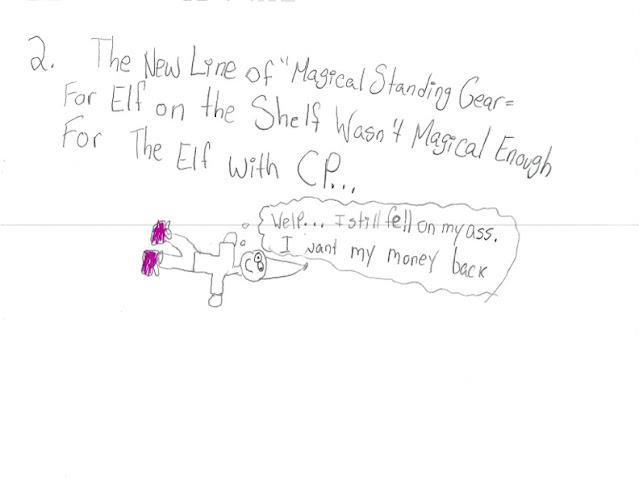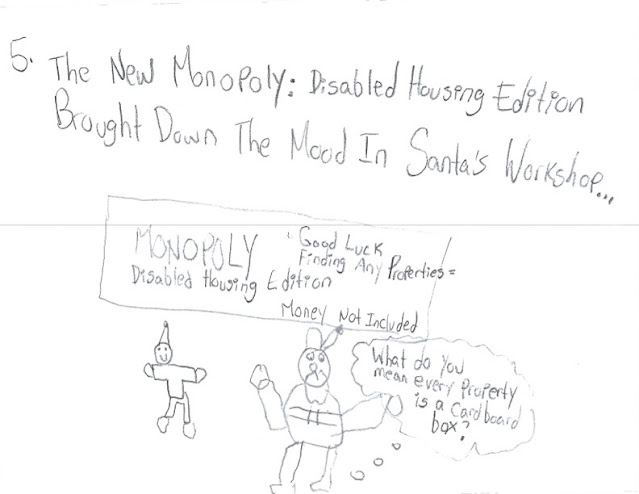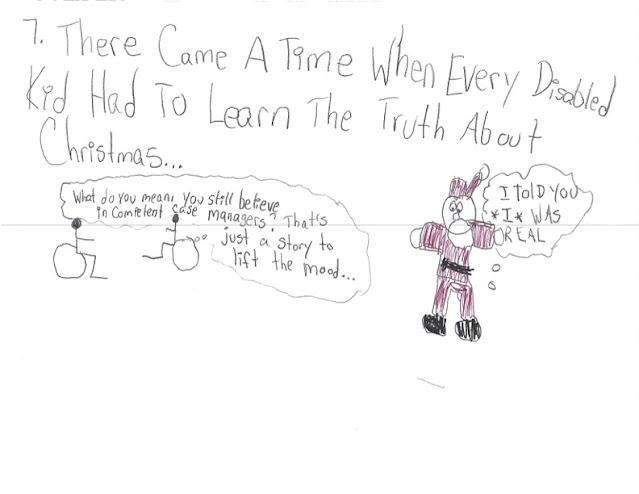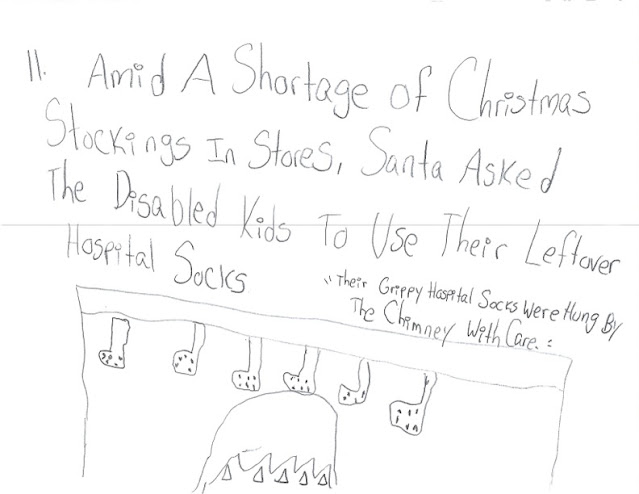Today I write not as The Squeaky Wheelchair, but rather as the Swiftie Wheelchair… I, like millions of others, waited with excitement and delight for the arrival of Taylor Swift’s 11th album, The Tortured Poets Department (TTPD). And before you pipe up and say, “I don’t like her!”, I have great news to share: you don’t have to.
I, for one, have loved following Taylor’s career, with all its angst, glitter, and unfettered girlhood bliss.
As a girl who was 15 when “Fifteen” debuted, and now a woman braving my 30s, these songs have weaved themselves through so many periods of my life, from my days scream singing Fearless at summer camp to long afternoons blasting Folklore to pass time during the 2020 quarantine.
I—literally and metaphorically— 🎵made the friendship bracelets🎵 and what a wonder it has been.
Yes, there are more important things happening in the world, but we can still make room for joy… and for me, Taylor has been just that: a joy bringer.
On TTPD, one track in particular has captivated me as a disabled woman navigating the judgment of an ableist society: “Who’s Afraid of Little Old Me?”
Before someone inevitably says it, hold your (white) horses, my friends… I am well aware that the world’s biggest pop star and I lead radically different lives.
No, Taylor Swift was not thinking about ableism or my experiences as your friendly neighborhood wheelchair lady when she wrote this song.
But isn’t that the beauty of art?
It holds different meanings for different people and at its best, highlights parallels between lives who at first, seemed to have nothing in common.
“Who’s Afraid of Little Old Me?” though originally penned about the unrelenting gaze of the media on a public figure, resonates with me as a visibly disabled woman dodging the ever-present stares of the public.
My slightly dilapidated body, seated in a large, pink, forever squeaky wheelchair, still elicits a torrent of unwelcome comments, from “What happened to you?” to “Got a license for that thing?”
Sometimes, I am met with just a long gawk. In the grocery store. In the park. In the doctor’s office. At the mall.
I’ve likened it to feeling like an exhibit, on display for prying eyes to consume.
On the other end of the spectrum, many don’t know how to look at me at all, and so they avert their eyes.
I’ve long felt this reaction is worse, somehow, because it makes me entirely invisible.
Swift sings, “So I leap from the gallows and I levitate down your streetCrash the party like a record scratch as I screamWho's afraid of little old me?”
As a person whose entire life is examined, scrutinized, and critiqued, I imagine she feels that society has metaphorically sent her to the gallows, ready to find her guilty in the court of public opinion for being “too emotional,” “too crude,” “too prudish,” “too whiny.” A perceived transgression pops up in the newspaper each day, and it seems there is no right way for her to do anything.
I’d be remiss if I did not mention that Swift’s enormous wealth, power, and influence offer privileges few will ever have…yet, she is still human, and to live under the hypercritical magnifying glass of the media, to have millions of strangers offering their two cents on her every move so too requires a fortitude that few will ever have.
Similarly, society demands that disabled people perform disability in a prescribed way. We must field those awkward questions with a charming smile and a sunny answer, because after all, they’re “just curious,” right?
We must work full-time, or we’re declared lazy, yet many employers tacitly express, “work, just not in my office.” Simultaneously, public policy dictates that if we expect our personal care support to be funded, we must live in poverty.
We’re told to be empowered. To self-advocate. To pave our own way.
Yet should we share our experiences online and highlight the egregious disregard for our rights in this country, we’re told to stop being entitled, to be grateful… because at least.
What the keyboard warriors don’t say out loud is that to them, we are the least.
To be disabled is to zigzag through a sea of contradicting expectations.
Disobey them and we too, are sent to the gallows, put on trial for failing to be disabled in a way that inspires and uplifts, but never challenges or unnerves.
I believe America has not yet decided if disability is grotesque, fascinating, or some combination of both.
Much like fame and celebrity, disability inspires a kind of voyeurism, with those on the outside desperate for a peek behind the curtain.
“Can you drink”?
“Can you have sex”?
“Would anyone ever date you?” they wonder, as if I’m not quite real to them beyond those inquiries.
As if my life is theirs to consume alongside a bucket of popcorn.
Perhaps in this way, Taylor and I are not so different.
As the one who everyone recognized in school as “the girl in the wheelchair,” but few really cared to know, I did become an unwilling public figure of sorts, a mascot who never asked to be one.
I was reminded of this recently when an elderly man I’ve never spoken to before stopped me at the supermarket and asked if I still lived on the same street, remarking, “Oh, I’ve seen you around a lot.”
Often, it feels like everyone knows what I am, but not who I am…and perhaps the biggest challenge of my life as a disabled adult has been this very loneliness—of being known and unknown all at once.
Although I am quite accustomed to standing out in a room, my visible difference in most groups still feels like Swift’s “record scratch,” like crashing a party where I don’t quite belong.
The line … “Is it a wonder I broke? Let's hear one more joke.Then we could all just laugh until I cry” has stayed in my head for days: to stay afloat in a profoundly ableist society, to weather a world that still uses disability as the butt of the joke, is to bend and bend and bend so you don’t break.
I, like many of my disabled peers, use humor as my shield.
Because if we didn’t laugh we’d cry, right?
But beneath my dry wit is a tender heart, a woman who remembers hiding in the elevator in middle school because she felt so alone.
A woman who still gets spoken to like a child by strangers.
A woman whose life is consistently devalued by social service systems that quietly mutter, “benefit scrounger.”
A woman who bends and bends and bends so ableism doesn’t break her.
To withstand its crushing force, disabled people too, must develop a fortitude few will ever have.
But some days we break, because how could we not?
This verse captured my interest the most and for me, spoke to a feeling the disability community knows too well.
“I was tame, I was gentle 'til the circus life made me meanDon't you worry folks, we took out all her teethWho's afraid of little old me?”
As a disabled person, the world has branded me a circus creature, and there I sit in the ring, subject to its questions, its observations, its pity.
And I must field it all with grace, lest I be deemed the Bitter Cripple.
The world dismisses disabled anger.
After all, I am…we are… supposed to be mild. Grateful. Toothless.
The image of a de-toothed circus animal speaks to me because that’s what we disabled folks are expected to be.
Answer those questions. Bear those looks. And never, never bite back.
Because they “mean well”, and you’re just sensitive.
Swift continues,
“… So tell me everything is not about me
But what if it is?
Then say they didn't do it to hurt me
But what if they did?
… I wanna snarl and show you just how disturbed this has made me
You wouldn't last an hour in the asylum where they raised me.”
I found this verse compelling too, when viewed from my perspective. Countless times I have been told that ableist comments weren’t meant to hurt me, didn’t mean what they sounded like. Still burned into my brain is a grad school instructor who told me “No one will want to work with you because of your helper,” her condescending word for my aide.
When I reported the incident, a superior insisted that the instructor “didn’t mean it like it sounded.”
A week or two later, that instructor was promoted rather than fired.
To those who deny institutional ableism, who think these slights don’t cause harm, I ask, “What if they did?” “What if they do?”
It takes unimaginable resilience to endure them, especially for disabled people who are multiply marginalized.
While Swift and I have faced dramatically different types of public scrutiny, I too, could have written, “I am who I am ‘cause you trained me.”
An ableist society trained me to follow its rules, if not to be liked, to be kept safe in care systems eager to dispose of me.
If that society is not afraid of “little old me,” it is certainly afraid of what I represent.
As a person who requires help with nearly everything, I represent a vulnerability that makes most non-disabled people squirm.
And if there’s a thing to be afraid of, perhaps it should be the righteous anger of disabled people treated as “less than” for too long.
Whether she knows it or not, Taylor Swift saw me (and so many others) when she wrote this song.
Thank you, Taylor, for that.
Kathleen, a white woman seated in a wheelchair, wearing a Taylor Swift Eras Tour shirt, a Taylor Swift skirt, purple tights, and glasses.













